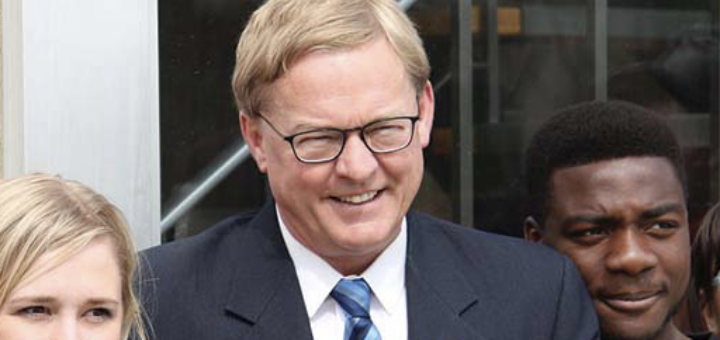The continued fight over post-secondary education tuition fees

Julie Patton, Staff Writer
Last February, the government of Alberta released the budget highlights for 2023. Included in the said budget was the ministry of advanced education’s plan to make post-secondary education more affordable. This will be done by placing a two per cent cap on domestic tuition increases starting in the 2024/25 academic year.
In addition to this cap, they will be reducing interest rates on student loans to the prime rate, doubling the student loan interest-free grace period from six to 12 months, and increasing the threshold for the Repayment Assistance Plan to $40,000 from the previous $25,000. Further, they are providing additional funding of $225 per month to the Alberta Student Grant for eligible students of the 2022/23 loan year.
Minister of Advanced Education Demetrios Nicolaides, says these plans will assist students as they face the high inflation rates for the cost of living. Additionally, he says the two per cent tuition cap will provide students with more predictability as they plan for the future.
“I’ve met very frequently with student leaders and one of the things they have asked for consistently over the past four years has been greater stability and predictability with tuition pricing,” says Nicolaides.
He adds that this is the first time the government of Alberta has introduced a tuition cap this low. Previously, the tuition cap was set at seven per cent. “For this current year, tuition rate is set at the level of inflation and of course, we’re seeing record-high inflation rates,” says Nicolaides.
He explains that Albertan universities and colleges must increase their tuition so they can continue to provide high quality education at the same level as other Canadian universities. The government is finding a balance to keep Alberta post-secondary institutions competitive both in their quality of education as well as their tuition rates.
“Over the past few years, the ranking of our universities and colleges have remained very strong, and many have increased,” Nicolaides says. “Right now, the tuition rates in Alberta are very comparable to the national average. We want to make sure that we don’t become a very expensive jurisdiction and that our rates remain competitive with other provinces.”
NDP criticism
NDP MLA David Eggen critiques the budget, saying that the two per cent tuition cap is not enough. He criticizes the UCP government saying that they should be providing more funding to post-secondary education.
“This government has taken more than $1.2 billion out of universities, colleges, and polytechnics over the last four years. This has been unprecedented cuts,” Eggen said. “If the UCP was serious about actually helping students, it would do so immediately. Certainly, that’s what we will do if we can win this election here in the next few weeks.”
Eggen said that tuition has increased by more than 30 per cent on average across the province. “Of course, you’ve had extraordinary tuition increases of 40, 50, even up to 100 per cent which have all been approved by this government. We are now having the highest increases in Canada for tuition.”
“I think it’s the responsibility of a government to make sure that post-secondary is affordable,” adds Eggen. “That is perhaps the single best investment that a government can make. You realize exponential returns from a dollar invested in post-secondary. Students become better equipped for the economy right now and in the future… It helps the overall economy of this province and quite frankly, helps to build community and citizenship.”
Nicolaides disputes Eggen’s claim that $1.2 billion has been cut from post-secondary funding. “I think there’s some creative accounting occurring,” said Nicolaides. “The government of Alberta has invested approximately $500 million in new funding to advanced education related initiatives.”
Student impact
Recently, Mount Royal University (MRU) has announced their budget for the 2023/24 academic year with students expecting an increase in their tuition and fees. Domestic tuition is increasing by 5.5 per cent and international tuition is increasing by five per cent. However, there are exceptions for a couple programs that will increase at a lower rate.
President of the Representation Executive Council (REC) at the Students’ Association of MRU (SAMRU), Joseph Nguyen, said the two per cent cap will be welcomed by students however it will only help short term. Adequate funding for post-secondary institutions would be a more stable solution.
“Everything is increasing, whether it’s food, housing, or tuition,” said Nguyen. “Students typically are mad at MRU administration, but I think the strategic move would be looking at the lack of government funding.”
Regarding MRU’s tuition increases, Nguyen said that as representatives of the student body they fought against the move to increase tuition.
“Whether it’s a one per cent increase or seven, students don’t like rising costs,” said Nguyen. “We are happy about the $200,000 MRU has allocated to increase the student bursary fund. That will help students.”
He adds that as institutions manage their funding next year with the two per cent cap in place, they need to make decisions that will continue providing students with quality education.
As for students still struggling against the rising costs, Nguyen encourages them to look into the available funding at MRU as well as SAMRU. He adds that SAMRU also has resources available for students struggling with food insecurity.






